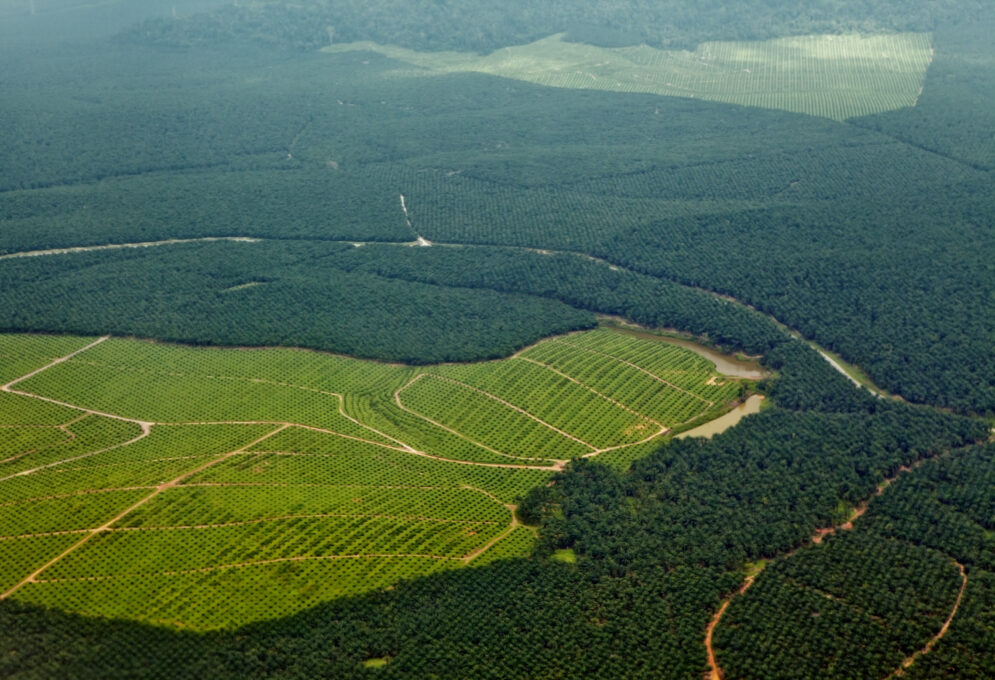
I only came upon the term jamais vu recently. It’s the opposite of deja vu and describes the sensation where something familiar suddenly feels new, like reading manslaughter as mans-laughter for example or finding yourself staring at the word knot, trying to unravel its meaning.
I was reminded of jamais vu recently when I read two articles on the same topic from the Irish Times and the Irish Independent. Both cited the latest SSE Airtricity Green Business Sentiment Index which found “an alarming deprioritisation of sustainability by businesses”.
Initially when I read that businesses did not see themselves as sharing equal responsibility for tackling climate change, I laughed a little as the European Green Deal clearly states that “The production and use of energy across economic sectors accounts for more than 75% of the EU’s greenhouse gas emissions”. As all economic activity is conducted through some form of company, to me that means that 75% of the EU’s greenhouse gas emissions are caused by businesses.

While I agree that governments should take the lead in setting and driving national targets I by no means believe they or the general public are primarily responsible for tackling climate change. As per the Polluter Pays Principle, I believe that those that directly cause the impact should take responsibility for mitigating it, i.e. businesses.
Although my first reaction was to laugh, I quickly started to think about how commonplace it is for many of us in business to dissociate our professional selves from our personal selves and as a result of this to experience a kind of jamais vu day-to-day.
While businesses typically represent themselves as corporate entities, they are ultimately a collection of people working together for a common outcome. Highlighting this human aspect can be great when businesses want to convey to customers how they can be trusted but becomes a lot less so when they need or want to do things that negatively impact people, such as making people redundant or exiting a location. In those circumstances, it is easier for a business and those in that business to represent themselves as a faceless entity or system just following process rather than as a group of individuals who have made a decision that negatively impacts their peers or fellow man. It becomes a lot easier in those circumstances to transfer responsibility for these difficult decisions from the individual(s) behind the curtain to the great and powerful Wizard of Oz.
We all buy into this corporate dissociation or Wizard of Oz phenomenon. I’ve done it myself and distinctly remember my progression from human to corporate hybrid. When I left college and joined a start-up I was most definitely fully human. Work was part of my life which meant my colleagues were good friends I spent a large proportion of time with. We laughed at ‘corporate speak’ and delighted at playing meeting bingo where we counted how many times ‘moving the goal posts’ or ‘touch base’ was used. We also ironically tried to fit these terms in ourselves whenever we could for extra points. While we understood that work was not the same as play, we found it a little ridiculous when people acted so differently within the confines of the office than they did outside it. Certain people, especially those in senior management seemed to mask up as soon as they crossed the threshold and seemed at times more like caricatures of managers than people.
In this same job however, I discovered why this mask might be needed.
As a tech startup in the late 90’s early 2000s, things were very rosy for a while. We had big dreams and lots of investment. Our company quickly grew from a small core team to a multi-national one with our lovely and gallant founder even stepping aside as CEO to make way for someone else with the right experience to achieve the valuation everyone thought we were capable of. Little did he or any of us know that the global crash was around the corner. What quickly followed was multiple (I think five) rounds of redundancy over a number of months and the ultimate closure of the Irish office. While each round of redundancy was shocking and the ultimate closure even more so, I wasn’t too affected personally. I was young, highly employable and delighted to receive a severance package. I do remember however how traumatic it was for others, both for those who were made redundant, in some cases at awkward times of their career and for the original founding team who felt ultimately responsible for the turn of events.
I also remember a distinct shift in company values when we moved from being founder-led to being investor-led. We went from being a group of people working together to achieve something collectively from which we would all benefit, to a group of people working for others. From masters of our own destinies to ants. All of our ‘shares’ were significantly diluted with every round of investment to the point of being worthless and all decisions were made on the basis of maximising a return on investment for a group of remote, nameless, faceless people, regardless of the personal trauma it entailed for the people we considered friends. A great lesson in capitalism from the outset!
I saw this pattern again and again in my career. Following my first stint as a permanent employee for this start-up I was fortunate to then contract for a number of different companies on their digital transformation programmes. The trend in these and other companies just after the crash was to reduce staff costs as much as possible. This didn’t necessarily mean reducing overall headcount as the work still had to be done but rather companies could reduce their OPEX (operational expenditure) costs if they used external contractors or off-shored work to locations where staff costs were lower. This meant that many of the programmes I worked on were executed in environments where the local staff were being made redundant to support these decisions to out-source, off-shore or near-shore work.
Each time people were made redundant they were devastated, especially in those companies where they talked about their working lives in terms of years of service. “I’ve given 30 years service to this place”. As I was working on company-wide transformation programmes I very often had to ensure those leaving handed over to those coming in. It can be hard to look devastation in the eye and it can be difficult to witness nice people being treated badly because they are seen as the source of job loss, so at some stage over this period I put my own mask on.
The show needed to go on. When contracting you are only as good as your last gig so I couldn’t afford to let the schedule slip because of my personal feelings. Instead I dissociated myself from these feelings and put in extra effort to join the dots and bridge the gap. This enabled me refer to people as resources and to see the trade union as an issue and disgruntled employees as a risk. My grandfather, a staunch union man with 50 years proud membership turned a little in his grave at this point I think.
This to me is how jamais vu develops. As you dissociate yourself from your values, feelings and opinions to avoid painful emotion associated with certain actions and decisions, familiar things begin to feel new. Dissociation enables you to start thinking of people as headcount or human capital and to think of trees, water and animals as inputs or natural capital. Jamais vu gives you new ways of talking and thinking about the familiar so that you don’t automatically associate them with your underlying emotion for them. This is business.
That’s why perhaps it is so easy for companies to quickly discount sustainability due to cost. As a result of successful dissociation, they don’t see themselves as impacting people or planet. They deal in commodities, in stocks of capital, so what business is it of anyone else to know how they manage these? Regardless of how it is accounted for, I personally know what typically happens to stocks of capital in the name of growth.

Like deja vu, jamais vu, when experienced should only be done so fleetingly. Could you imagine being in a permanent state of deja vu? How messed up would that be? That’s where we find ourselves however with jamais vu and that’s how the world is in such crisis. Our business-dissociated nickle and dime view of people and planet does not align with reality and the sooner we re-associate ourselves with this fact and re-associate our professional and personal selves with each other, the better chance we have of recovery.
We need to start calling a spade a spade. We need to understand that sustainability is not a measurement of GHG emissions but rather a measure of our impact. Yes our impact. Our impact as a collection of individuals working together for a common outcome. Our impact as a result of our actions and our decisions. No matter who you are or what position you have in a company, you are part of it and your company’s impact is partially your impact.
If you don’t know what this impact is, call for it to be identified at the very least. Don’t get distracted by the great and powerful Wizard of Oz. Go and ask the person or people behind the curtain.






